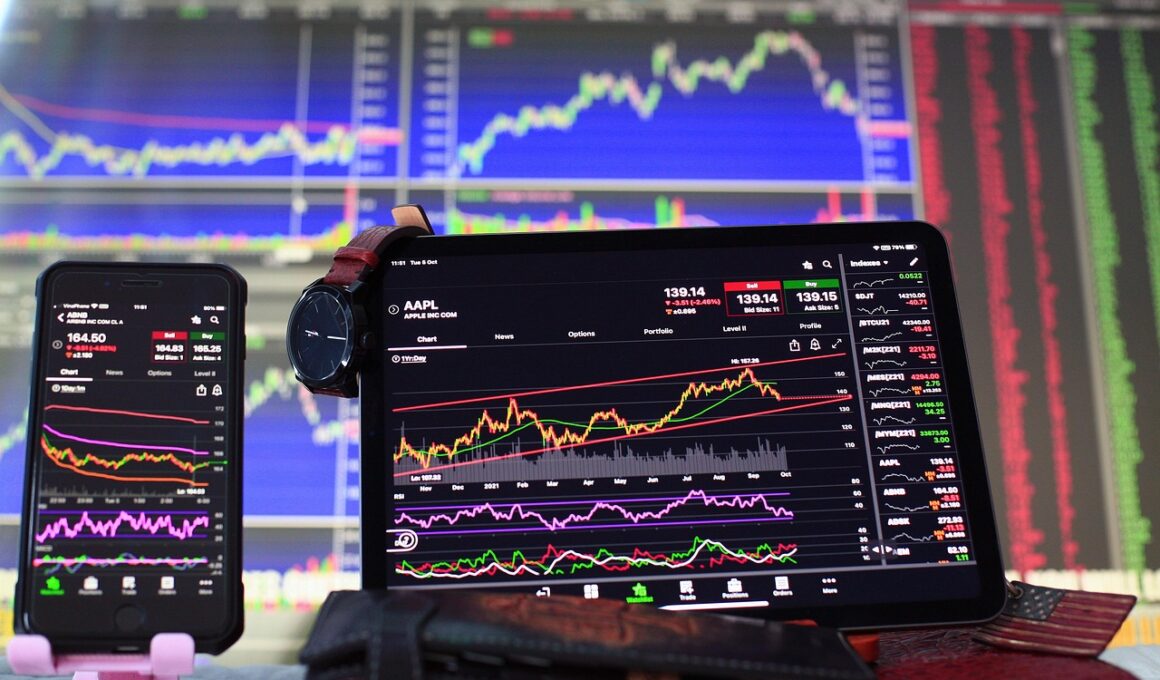Understanding the Basics of Futures Trading in the Stock Market
Futures trading in the stock market offers a unique opportunity for investors to speculate on the future prices of underlying assets without having to own them outright. This practice involves contracts that obligate the buyer to purchase, and the seller to sell, an asset at a predetermined price on a specific future date. Unlike traditional stock trading, futures can be traded on an extremely varied range of assets, including commodities, currencies, and indexes. Traders can leverage their investments by controlling a larger position than if they were to buy the asset outright. As a result, this can amplify both gains and losses. Futures trading requires a firm understanding of market trends and price movements. Additionally, it can be a powerful tool for hedging against potential losses in an investor’s portfolio. Speculators are often drawn to trading futures for the potential high returns, but it also carries a higher risk due to the leverage involved. To successfully engage in this market, one must grasp fundamental concepts and analyze market data effectively.
Key Components of Futures Contracts
Understanding the key components of futures contracts is essential to anyone interested in entering this trading arena. A futures contract typically includes the contract specifications, the underlying asset, the price, and the expiration date. The underlying asset can vary greatly, encompassing everything from agricultural products like wheat and corn to financial instruments like stock indices. The price is set at the time the contract is entered, and the expiration date indicates when the contract must be executed. Traders often have the option to take delivery of the asset or close the position before expiration. One critical element of futures trading is the margin requirement, which is the amount of cash that must be deposited to open and maintain a position. This margin acts as a good faith deposit and allows traders to leverage their positions. It is also important to note that futures contracts can be settled either through cash or by physical delivery. Understanding these components helps traders evaluate potential risks, benefits, and their overall trading strategies.
Market analysis plays a critical role in futures trading. Traders must be adept at analyzing both fundamental and technical factors that influence price fluctuations in the market. Fundamental analysis includes evaluating economic indicators, supply and demand dynamics, and geopolitical factors that may affect asset prices. In contrast, technical analysis involves studying historical price patterns and using charting tools to predict future price movements. Combining these forms of analysis provides a more comprehensive understanding of market behavior. Many traders also rely on trading signals and automated trading systems to enhance their analysis and execution strategies. Risk management is another crucial aspect of futures trading; traders often use stop-loss orders to mitigate potential losses. Keeping abreast of market news and changes can greatly impact trading strategies and outcomes. Additionally, various trading platforms offer different tools and functionalities, enabling traders to customize their approach based on their strategy and risk tolerance. Ultimately, thorough market analysis can increase the chances of successful trading in futures markets.
Benefits of Trading Futures
Trading futures offers several key benefits that can make it an appealing option for investors. One notable advantage is the ability to trade on margin, which allows traders to control a larger position with a smaller initial investment. This leverage can significantly amplify returns on a successful trade. Additionally, futures markets are generally more liquid than other markets, meaning traders can enter and exit positions with greater ease and speed. The ability to short-sell is another appealing feature, enabling traders to profit from declining prices. Furthermore, futures contracts provide excellent hedging opportunities for businesses and investors looking to protect themselves against price fluctuations in essential commodities. This aspect is particularly valuable in industries subject to high volatility. Futures also allow for 24-hour trading, meaning traders can react to market events as they occur, regardless of traditional market hours. Moreover, with transparent pricing and lower transaction costs compared to other forms of trading, futures can be a cost-effective option for active traders seeking to maximize their profitability. Understanding these benefits can open new avenues for strategic investment.
However, trading futures isn’t without its challenges. The high leverage that attracts many traders can also lead to substantial losses if a position takes a turn for the worse. Understanding the importance of risk management is thus imperative; experienced traders often employ strict risk management practices to safeguard their capital. Market volatility can lead to unpredictable price swings, and significant market events can correlate with even more dramatic changes. Traders must also stay informed about global events and economic reports that can impact the underlying assets they are trading. It is critical to maintain a disciplined approach and not allow emotions to dictate trading decisions. Continuous education and practice can also mitigate the risks associated with futures trading. Utilizing demo accounts to practice trading strategies can provide valuable experience without significant risk. Overall, awareness and education make a huge difference in navigating the futures market successfully while minimizing potential risks.
Choosing a Futures Broker
Selecting the right futures broker is a crucial step in a trader’s journey. A good broker can provide valuable resources, tools, and support that can enhance trading strategies. Traders should first consider the broker’s reputation and regulatory compliance to ensure they are dealing with a legitimate entity. An experienced broker will offer a trading platform equipped with essential features like charting tools, market research, and real-time news feeds. Additionally, cost structures are significant; comparing commission fees, spreads, and account minimums can help traders find the best option for their needs. User-friendly interfaces can also make a substantial difference in a trader’s experience. Customer support is another important consideration; having access to knowledgeable support can be invaluable during critical trading times. Traders should also evaluate the educational resources provided by the broker, as these can enhance their understanding of futures trading. Finally, checking for broker accessibility on various devices like mobile phones and tablets is essential for those trading on the go, ensuring flexibility and convenience in trading operations.
In conclusion, understanding the basics of futures trading in the stock market is an essential aspect for anyone looking to enhance their investment strategies. The unique characteristics of futures contracts, including leverage, trading variety, and risk management techniques, make this form of trading distinctly different and often more volatile than traditional stock trading. As traders embark on their futures trading journey, continuous education and hands-on experience will be pivotal for success. It is advisable to start small, practicing on demo accounts, and gradually expanding trading activities as confidence and expertise develop. By staying informed about market developments and utilizing effective analysis techniques, traders can navigate this fast-paced environment. Futures trading can offer lucrative opportunities for those willing to embrace the associated risks while applying sound trading strategies. Whether hedging against risks or seeking profit through speculation, a well-rounded understanding of futures is necessary. Armed with this knowledge, traders can better position themselves for success in the dynamic landscape of futures trading.
Ultimately, engaging in futures trading presents both opportunities and challenges that require special attention. Traders are urged to remain disciplined and assess their own risk tolerance before diving into these financial instruments. Various tools, resources, and strategies can assist traders in optimizing performance. It is wise to continually analyze market trends and hone one’s strategies in response to new information. The expansive nature of the futures market means there are vast assets to consider, and each trader should focus on the ones that align best with their individual investment goals. With thorough knowledge, prudent risk management, and strategic planning, futures trading can become a rewarding undertaking for dedicated investors. By amalgamating these strategies with comprehensive analysis and education, traders can enhance their chances of achieving success. In a field known for its complexity and rapid change, building a solid foundation in the basics of futures trading undoubtedly serves as a stepping stone to potential investment success.


